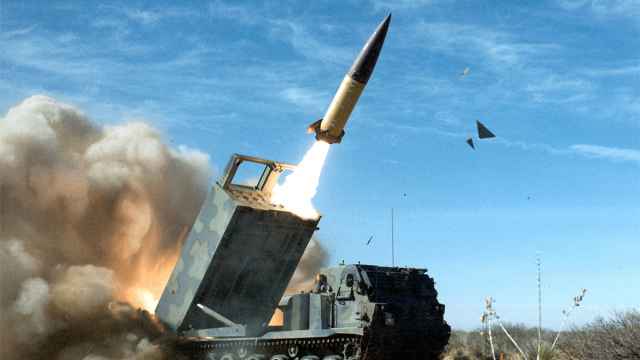President Dmitry Medvedev's decision to reduce Russia's payroll tax will cost the budget 400 billion rubles ($14.3 billion), which may be offset by asset sales and energy income, Finance Minister Alexei Kudrin said Wednesday.
Russia raised the tax, which goes toward the health care and pension systems, to 34 percent this year from 26 percent to help fund the budget deficit. Medvedev ordered the government earlier this month to reduce the levy to 20 percent for small and medium-sized companies and to 30 percent for everyone else.
The government may not be able to afford lowering the tax level because it would cost "hundreds of billions of rubles," Prime Minister Vladimir Putin said June 23.
Russia expected 700 billion rubles to 800 billion rubles of additional revenue this year from the increase, Arkady Dvorkovich, Medvedev's economic aide, said in March.
The higher payroll tax was part of the government's effort to balance the budget by 2015 while relying less on energy exports for revenue. The fiscal gap will probably narrow below 1.5 percent of gross domestic product this year from 4.1 percent in 2010, Dvorkovich said.
Russia will probably run a deficit less than 3 percent from 2012 to 2014, Dvorkovich said. The government won't be able to reduce the gap over the period because oil prices will be lower than this year, Dvorkovich said.
The reduced payroll tax rates will be in effect for 2012 and 2013, with small businesses and non-commercial organizations in "socially significant" sectors of the economy eligible for a reduced 20 percent rate, Medvedev said in his annual budget address Wednesday, according to a transcript posted on the Kremlin's web site.
Medvedev said pensions would be increased more than 11 percent next year.
"A complex of proposals on developing the pension system and payroll tax system must be prepared in 2012," he said in the address.
The president also made a renewed call for the government to prepare for selling its controlling stakes in some key state companies.
He called on the Cabinet to prepare a schedule of sales, saying the state may surrender its controlling stake in some companies and totally privatize others.
Earlier plans had envisaged that the government would retain its controlling stakes in most strategic companies.
Earlier this week, Finance Minister Alexei Kudrin said the government plans to sell controlling stakes in Rosneft, Aeroflot, and other top state-controlled companies and banks over the next three to five years.
He said the state expects the sell-off to yield about $30 billion over the next three years.
Medvedev also urged the government to keep a tight lid on spending and accumulate windfall oil revenues in a rainy day fund.
At the same budget meeting the president said rules governing use of oil and gas revenue and providing for their partial accumulation and introduction of limits on the size of the federal budget deficit must take effect from 2015.
(Bloomberg, AP, Interfax)
A Message from The Moscow Times:
Dear readers,
We are facing unprecedented challenges. Russia's Prosecutor General's Office has designated The Moscow Times as an "undesirable" organization, criminalizing our work and putting our staff at risk of prosecution. This follows our earlier unjust labeling as a "foreign agent."
These actions are direct attempts to silence independent journalism in Russia. The authorities claim our work "discredits the decisions of the Russian leadership." We see things differently: we strive to provide accurate, unbiased reporting on Russia.
We, the journalists of The Moscow Times, refuse to be silenced. But to continue our work, we need your help.
Your support, no matter how small, makes a world of difference. If you can, please support us monthly starting from just $2. It's quick to set up, and every contribution makes a significant impact.
By supporting The Moscow Times, you're defending open, independent journalism in the face of repression. Thank you for standing with us.
Remind me later.





